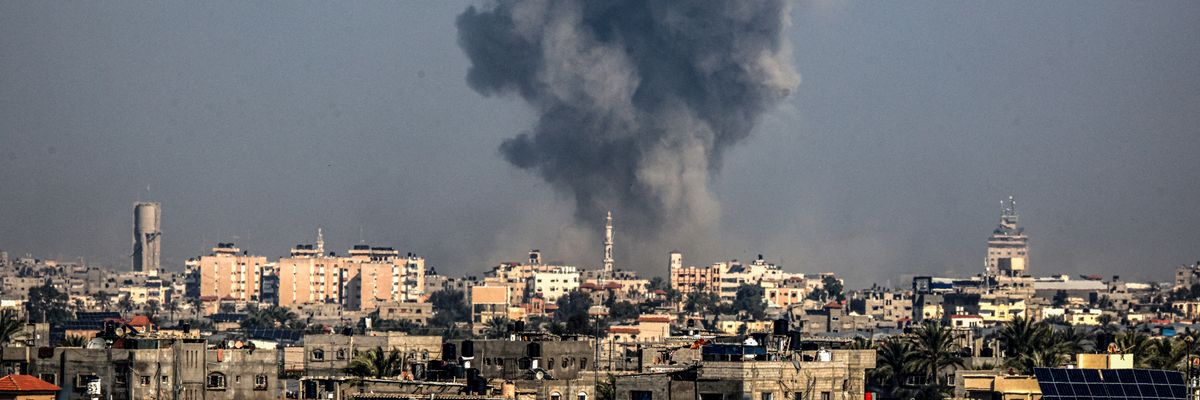The United Nations' emergency relief coordinator warned Friday that the threat of a broader conflict in the Middle East is growing rapidly as Israel's assault continues in Gaza, which the U.N. official said has been rendered "uninhabitable" by near-constant airstrikes and a suffocating blockade.
"The specter of further regional spillover of the war is looming dangerously close," Martin Griffiths, the U.N.'s under-secretary-general for humanitarian affairs, said in a statement, pointing to the humanitarian catastrophe in Gaza, mounting Israeli attacks in the West Bank, and rocket attacks on Israel. "Hope has never been more elusive."
Griffiths, a longtime diplomat who has described the situation in Gaza as the worst humanitarian crisis he's ever witnessed, issued his unsparing statement at the tail end of a week that saw Israel and the United States launch deadly strikes in Lebanon and Iraq, killing a senior Hamas official and the leader of an Iran-aligned militia.
On Saturday, Hezbollah responded to Israel's drone strike on an office building in the Lebanese capital of Beirut by firing rockets at a military base in northern Israel, heightening fears of an escalatory spiral.
While the Biden administration insists it wants to avert a regional war, it continues to provide Israel with lethal military aid and oppose international efforts to enact a permanent cease-fire that analysts say is necessary to stop the conflict from spreading. The U.S. is also reportedly drafting plans to bomb Yemen in response to Houthi attacks on vessels in the Red Sea.
The Houthis have said the attacks will stop once Israel ends its catastrophic assault on the Gaza Strip.
Griffiths said Friday that the situation in Gaza is shockingly dire, with displaced families "sleeping in the open as temperatures plummet" and the territory's remaining medical facilities "under relentless attack."
"The few hospitals that are partially functional are overwhelmed with trauma cases, critically short of all supplies, and inundated by desperate people seeking safety," said Griffiths. "Infectious diseases are spreading in overcrowded shelters as sewers spill over. Some 180 Palestinian women are giving birth daily amidst this chaos. People are facing the highest levels of food insecurity ever recorded. Famine is around the corner."
"For children in particular," Griffiths added, "the past 12 weeks have been traumatic: No food. No water. No school. Nothing but the terrifying sounds of war, day in and day out."
Much of Gaza has been decimated by Israeli bombs, many of which were supplied by the United States. The Euro-Mediterranean Human Rights Monitor said Friday that around 68,000 housing units in Gaza have been completely destroyed by Israeli airstrikes.
Roughly 4% of Gaza's population—more than 90,000 people—has been killed, wounded, or left missing by Israeli attacks since October 7, the group estimated.
"It is time for the parties to meet all their obligations under international law, including to protect civilians and meet their essential needs, and to release all hostages immediately," Griffiths said. "It is time for the international community to use all its influence to make this happen. This war should never have started. But it's long past time for it to end."
